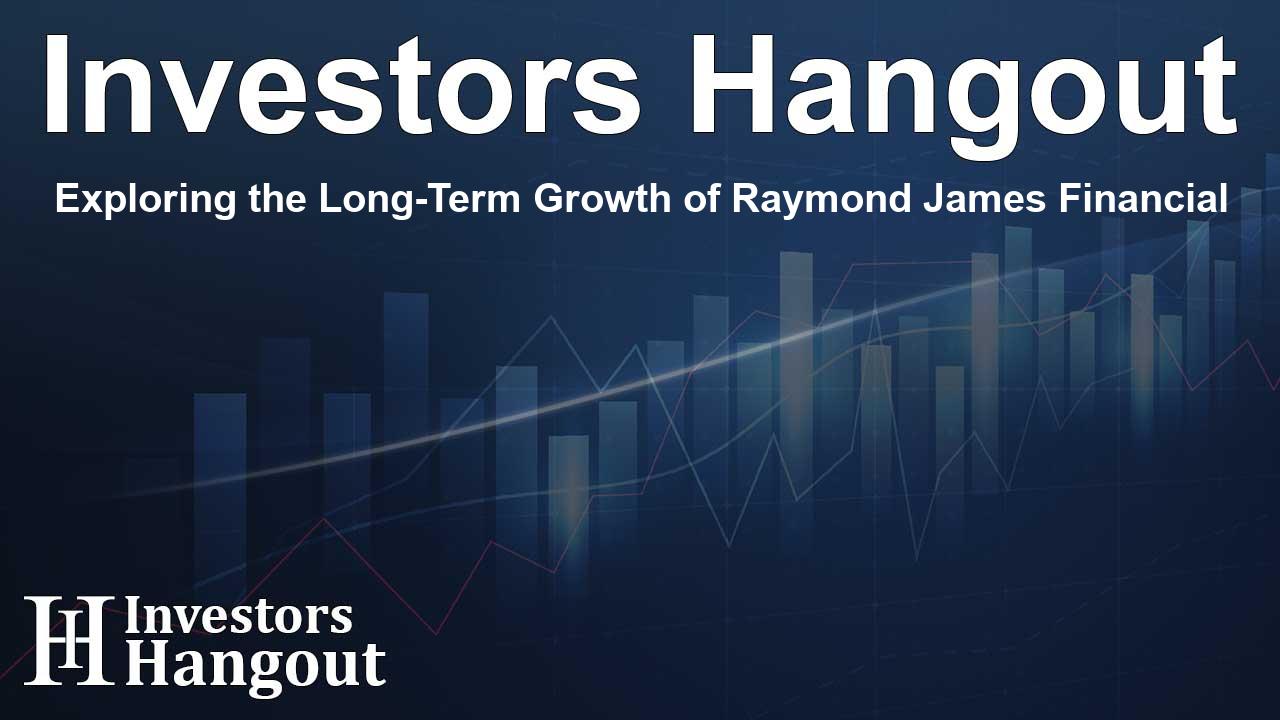Exploring the Long-Term Growth of Raymond James Financial

Investing in Raymond James Financial
Raymond James Financial (NYSE:RJF) has showcased remarkable performance in the financial markets over the past 15 years. By consistently outperforming the market with an annualized return of 15.48%, the company has grown its market capitalization to an impressive $32.66 billion.
The Value of Early Investments
If an investor had taken a step 15 years ago and invested $1000 in RJF stock, that initial investment would now be worth approximately $8,764.53. This impressive growth highlights the value of long-term investment strategies and the impact of compound returns over time.
The Importance of Compounded Returns
Understanding the concept of compounded returns is crucial for any investor. Compounding allows earnings on an investment to generate additional earnings over time, significantly increasing the value of the investment. This can lead to substantial wealth accumulation, especially when given enough time to grow.
Market Trends and Company Performance
In recent times, Raymond James Financial has continued its trend of supporting investors with reliable insights and financial services. As the financial sector evolves, it remains important for companies like Raymond James to adapt and meet the changing needs of their clients.
Future Outlook for Raymond James Financial
As the market evolves, so does the strategy of Raymond James Financial. Continually focusing on innovation and client satisfaction, the company aims to secure its standing in the market and ensure that investors can still experience fruitful returns in the years to come.
Key Factors Influencing Growth
Several factors are set to influence the growth of Raymond James in the upcoming years. These include the overall health of the economy, interest rates, and regulatory changes that may impact financial services. Keeping an eye on these elements will be crucial for prospective and current investors.
Frequently Asked Questions
What is the historical performance of Raymond James Financial?
Raymond James Financial has shown an annualized return of 15.48% over the past 15 years, outperforming the market by 3.15%.
What would a $1000 investment in RJF be worth today?
A $1000 investment in RJF stock 15 years ago would be valued at approximately $8,764.53 today.
How does compounding work in investments?
Compounding is the process where earnings on an investment generate additional earnings. Over time, this leads to significant growth in the investment's value.
What factors can affect Raymond James Financial's growth?
Key factors influencing growth include economic conditions, interest rates, and regulatory changes in financial services.
What is the current market cap of Raymond James Financial?
Raymond James Financial currently holds a market capitalization of about $32.66 billion.
About The Author
Contact Hannah Lewis privately here. Or send an email with ATTN: Hannah Lewis as the subject to contact@investorshangout.com.
About Investors Hangout
Investors Hangout is a leading online stock forum for financial discussion and learning, offering a wide range of free tools and resources. It draws in traders of all levels, who exchange market knowledge, investigate trading tactics, and keep an eye on industry developments in real time. Featuring financial articles, stock message boards, quotes, charts, company profiles, and live news updates. Through cooperative learning and a wealth of informational resources, it helps users from novices creating their first portfolios to experts honing their techniques. Join Investors Hangout today: https://investorshangout.com/
The content of this article is based on factual, publicly available information and does not represent legal, financial, or investment advice. Investors Hangout does not offer financial advice, and the author is not a licensed financial advisor. Consult a qualified advisor before making any financial or investment decisions based on this article. This article should not be considered advice to purchase, sell, or hold any securities or other investments. If any of the material provided here is inaccurate, please contact us for corrections.
